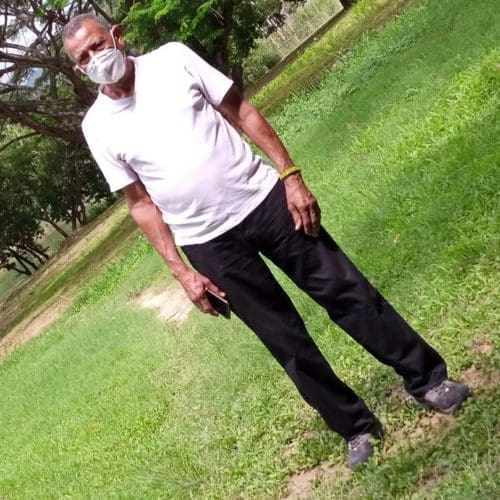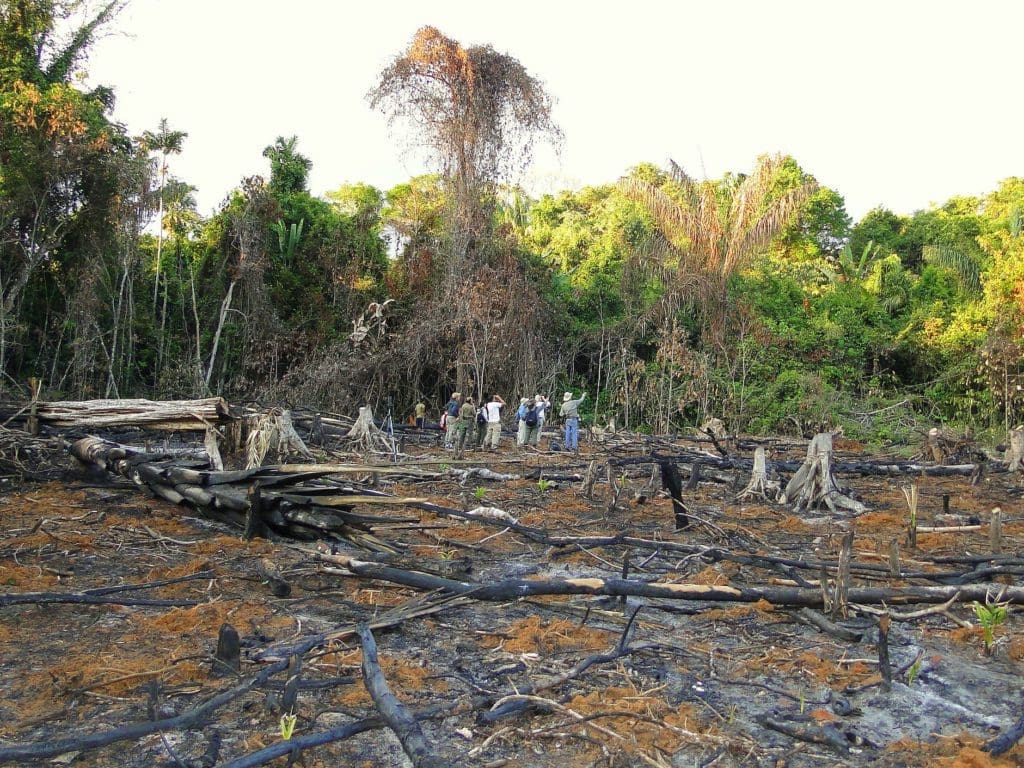Venezuela man finds bodies in water supply, fights environmental crimes
The Ministry exerted their influence as a tool to silence and run over me; they use these tools to make life miserable for any citizen who speaks out. With my safety in mind, I made a compromise. I promised to modify the form and tone of my complaints, but made it clear I would not give up my rights, much less my healthy environment.
- 2 years ago
July 9, 2022

GUARENAS, Venezuela ꟷ When environmental problems arose with water quality in the region where I live, members of the neighborhood association visited the reservoirs to investigate. We discovered something dark and astonishing.
Dead bodies of people executed by criminal gangs in the underworld floated in the water. We filed a complaint with the governmental authorities.
From dead bodies to the indiscriminate felling of trees
The stark discovery of bodies in the reservoir happened several years ago. I lived in the Los Valles del Tuy in Miranda state, near the Tuy River. My neighbors and I enjoyed caring for our neighborhood. We worked with the Ministry of Environment and Municipal Engineering to build a dirt wall to protect the river.
Later, we added a trail, planted trees, and created a park. But soon, a problem arose with our water quality. Together with the neighborhood associations, we went to visit the reservoirs. When we discovered the dead bodies floating there, we reported it.
A representative from the government called us. Instead of addressing our concerns, they suggested we slow down; that filing complaints could risk our safety. Since then, the Venezuelan government abandoned those reservoirs, and our complaints went unanswered.
This is but one environmental issue in my country. The indiscriminate felling of trees remains an even more difficult problem.
When I moved to Nueva Casarapa in 2007, I immediately noticed the well-maintained greenery. Trees and lush vegetation surrounded residential complexes. Residents had access to a beautiful lagoon.
I enjoyed the singing and chirping of little birds in the morning, and the presence of opossums and other animals. The neighborhood’s attraction emanated from its fundamental contribution to nature and life.
Since then, the indiscriminate felling of trees pushed the animals away. I made complaints on social networks and to corresponding governmental offices. Soon, the attorney general blocked me from Twitter. The authorities summoned me to the Public Ministry for incitement of hatred.
From urban centers to the Amazon, environmental crimes ensue
The Ministry exerted their influence as a tool to silence and run over me. They use these tools to make life miserable for any citizen who speaks out. With my safety in mind, I made a compromise. I promised to modify the form and tone of my complaints. Yet, I made it clear I would not give up my rights, much less my healthy environment.
In the urban areas we watched as permits were granted for building projects anywhere. They contained no guidelines for proper care of green areas. Developers planted fashionable trees without knowing if they were the right choice for the soil.
New buildings placed over the sprawling roots of the Samán tree quickly threatened the stability of buildings. To preserve the buildings and human safety the trees got pruned or removed. Sadly, we watched as workers ignored regulations saying 10 trees must be planted for each one taken down.
Further into urban areas, you see citizens cutting down trees for fuel, firewood, and to cook their food. Though Venezuela remains an oil producing country, a shortage of propane gas and lack of supply means citizens rely on trees to survive.
The issue runs rampant at a national level as well, due to deforestation. Deep in the Amazon, in violation of international treaties, members of the organized criminal underworld set upon the mining arc. The illicit mines push out the artisanal miners adversely impacting the livelihoods of indigenous people and nearby residents.
The gangs establish their own laws and regulations on a whim. If you violate them, a price is placed on your head. The mining and subsequent deforestation result in irreparable harm to this area of Venezuelan and early human heritage.
From a social standpoint, mining exploitation attracts people looking for wealth, but instead they find disease and death. From an environmental standpoint, we see soil erosion, changes in river flow, deforestation, and gold extraction.
Lack of proper planning and public policy leads to apathetic attitudes
Meanwhile, in Caracas, we watched as the government felled 28 kilometers of years-old trees to plant African Palms to compliment a bronze monument in honor of the Battle of Carabobo.
Environmentalists like me raise questions. Why plant a palm that is nonadaptive to our climate or environment? Other projects have come to light, like removing oxygen-fresh plants that embellish roadsides. I wonder, is it all for publicity? Do our public officials just want popular areas to appear clean and beautiful regardless of the impact, while other areas remain filthy and abandoned?
As the weeks and months go on, improperly planned projects lack maintenance. Trees interfere with sidewalks, buildings, and other infrastructure. When maintenance does happen out of necessity, nonprofessionals leave trees lopsided and out of balance.
Soon, people begin justifying their actions against the environment. Unfortunately, citizens themselves become perpetrators by poisoning trees, burning and cutting their roots, and pouring diesel oil on them. As the lower part of the tree weakens, it cannot support its own weight and crashes to the ground.
A passionate cry for international intervention, an activist endangered
I serve as a member of an environmental movement in Venezuela which remains weak. We face a culture without care or respect for the environment. Others and I feel helpless in the face of deforestation at the Arco Minero.
We stand impotent against an abusive state and a citizenry without training in environmental matters. Our voices call out for intervention from international organizations with hope Venezuela will be punished for environmental violations.
Our efforts echo through the cavern of public opinion and a silent media. Yet, we cry out to the rest of the world to set its eyes on our country so the destruction of the environment and the Amazon will stop.
Defending the environment means defending life which stands at the center of my principles. When I started my work as an educator, I became close to nature. I learned to love and respect her, understanding the environment generates the conditions for life. It gives oxygen and offers us shade.
Despite not having a public forum, I must denounce the violations I see. Sadness fills me as I watch authorities neglect people and the environment at every level; and as policies and agreements go unenforced.




























































































































































































